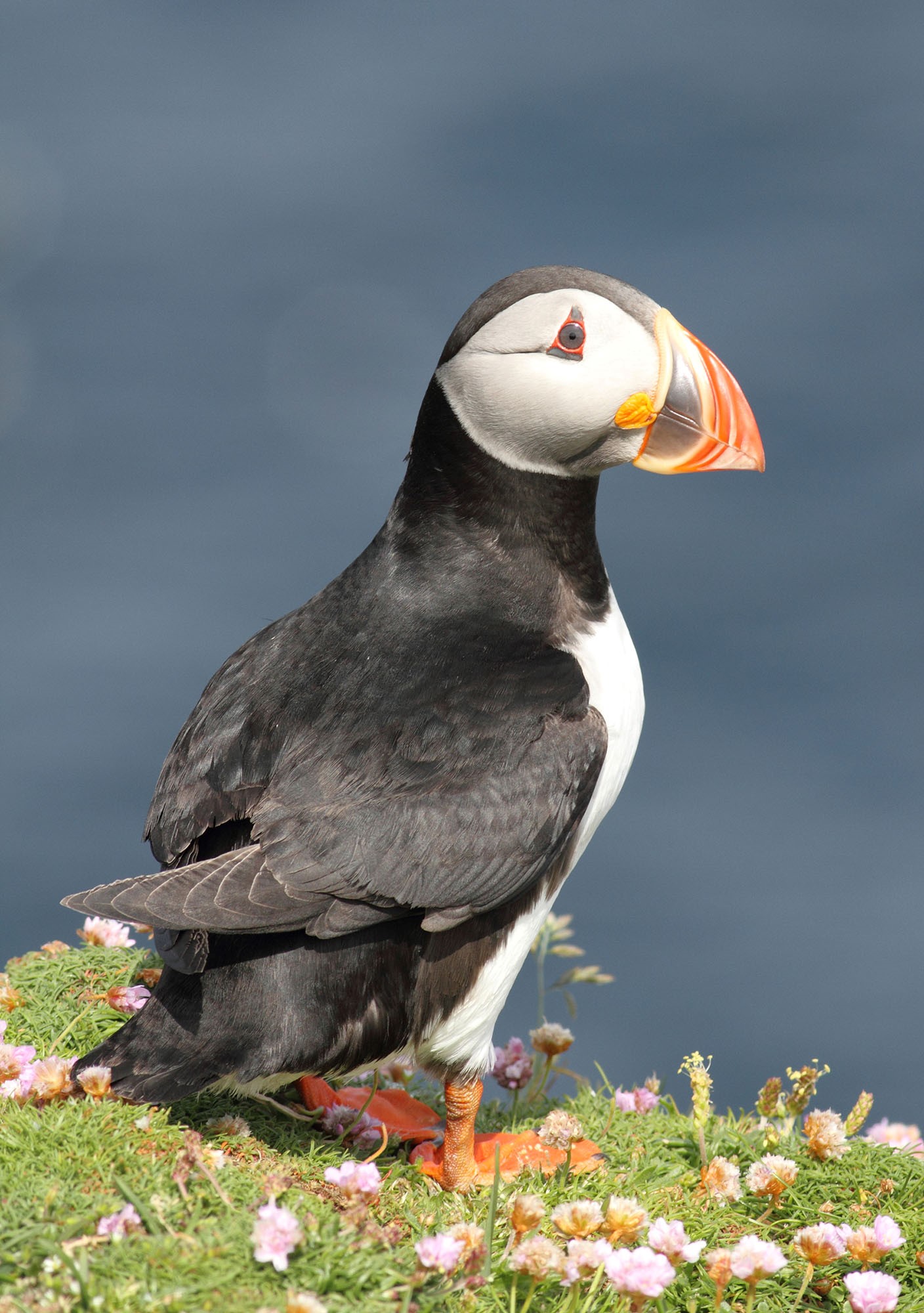
I’ve not eaten this species as yet but that’s partly through lack of opportunity. I’ve yet to visit Iceland where they are often on the menu and are, apparently, readily available in supermarkets.
It’s interesting that the idea of eating this bird instils horror in people who might be happy enough to eat duck or goose or pheasant. On the face of it, Puffin as a food source has quite a bit going for it. They are abundant (in the places where they are taken for food), they are about as free range as it is possible to get, and because they are netted at breeding colonies, rather than shot, a meal does not come with the risk of denting your teeth – or your intelligence. It’s not pleasant that anything has to be killed just so we can eat it but if I had to choose a way to go then netting followed by humane dispatch would be right up there. Not least, it’s all or nothing. You are either caught and killed, or you escape unharmed; there is no chance of wounding followed by a prolonged and painful death as unavoidably happens so much of the time with shooting.
This, I think, is an example of System Justification Theory whereby we automatically and subconsciously adjust to, and are therefore more likely to accept, the status quo. Shooting Mallards or Rabbits to provide food is seen as more acceptable than killing Puffins for no other reason than that it has been happening here in Britain for a long time and we have all got used to it. The same thing helps to explain many of our responses to the exploitation or management of wildlife. Think about the outrage generated by the licenced killing of a few Buzzards compared with our far more relaxed attitudes towards the routine annual destruction of thousands of Carrion Crows and Magpies (birds that are far more intelligent). We might not support this killing but we tend not to get so worked up about it. Why should there be this difference?
I’m not suggesting that we start to eat Puffins (or, for that matter, allow more Buzzards to be killed). I’d see it the other way around; the theory helps to explain why change to current practices is so hard to achieve even when all the arguments are heavily stacked in your favour. Imagine trying to justify the introduction of a new sport called driven grouse shooting or a new proposal to release 40 million non-native chicken-sized birds into the landscape every year. Everyone would laugh at you. And yet, here we are, with most of the population seemingly content to live with both.
Previous ‘Wild food’ posts by Ian Carter:
[registration_form]
Having seen puffin netting on a TV programme, I now have an irresistible image of men in tweed dashing round the moors with giant butterfly nets.
You write “It’s not pleasant that anything has to be killed just so we can eat it”.
You’re right. But nothing does have to be killed so we can eat it. On the contrary, humans would have far *more* food available if we didn’t eat animals. Animal agriculture is grossly inefficient (the protein and calories you get out as meat are only a small fraction of what you put in). And with 7.6 billion humans on the planet, ‘wild food’ is either unsustainable, or a tiny niche irrelevant to almost everyone.
So if you think it’s “not pleasant”, stop doing it, you’ll be well fed and healthy and we can give back to nature the agricultural land you’ll no longer be using.
A splendidly well constructed piece of rhetoric (and I mean that very much in the positive sense of the word), Ian. Genuinely thought focusing, bravo!
Jim, many thanks. It’s sometimes hard to know whether thoughts swirling around in your own head have much relevance to others so it’s nice to get such feedback.
Phil, I agree with the first part of what you say. We act selfishly when eating meat much as we do with burning carbon unnecessarily during non-essential travel. I aspire to eat less meat (and to burn less carbon) but I’m not sure I could give either up completely, for purely selfish reasons. I partly agree with what you say about wild food being a niche market and largely irrelevant, but not entirely – I think there is (or at least could be) more to it than that and it’s a subject I might say more about in a future piece – if Mark will indulge me.
Interesting that most Red Grouse were caught by snares. One moor was found to have over 1000 snares on it! Another way to catch male Red Grouse was by using a ‘Larson’ trap with a cock bird in one side and the territorial bird attacking the bird on its territory and ending up in the other compartment. One incident showed that a man positioning the trap actually caught the territorial male while he was not finished sorting the trap so strong was the urge to remove this new bird!